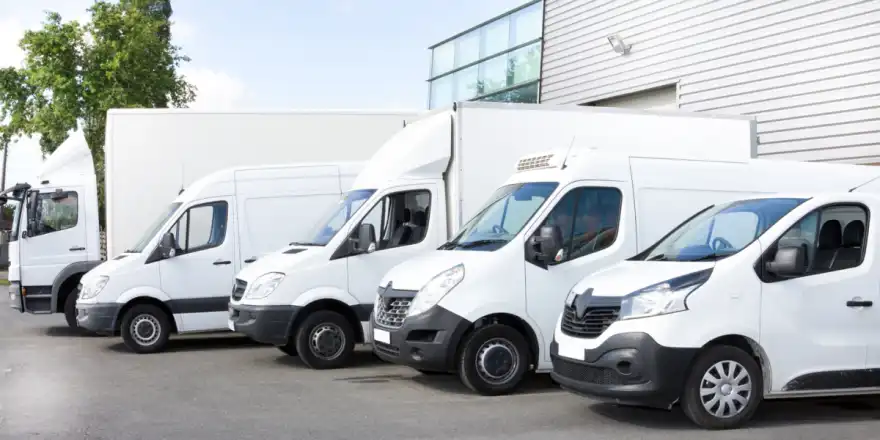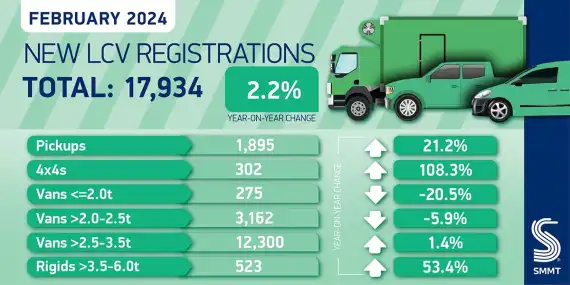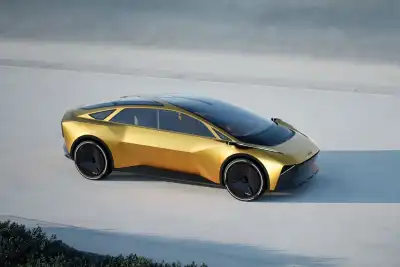
In February, the demand for new light commercial vehicles (LCVs) in the UK increased by 2.2% to reach 17,934 units, marking a growth streak for 14 consecutive months. This is the best performance for February since 1998. Traditionally, February sees lower procurement activity as many businesses wait until March for the new numberplate, but this increase defies that trend.

Vans weighing between 2.5 to 3.5 tonnes saw a 1.4% rise, reaching 12,300 units, making up nearly 70% of all new vans. On the other hand, smaller vans (up to 2.0 tonnes) and medium-sized vans (2.0 to 2.5 tonnes) experienced declines of -20.5% (275 units) and -5.9% (3,162 units) respectively.
Smaller 4x4 vehicles saw a huge increase with registrations more than doubling, shooting up by 108.3%. Pickups, crucial for rural and construction businesses, claimed the third spot in popularity among commercial vehicles, right after heavy and medium vans, with registrations rising by 21.2%.
Keeping our vehicle fleets up-to-date is important for reducing carbon emissions. The government's recent decision to cancel tax changes for double cab pickups is good news as it means businesses can keep investing in newer models that are more environmentally friendly. Many in the industry believe that using a vehicle's type approval is a fairer and simpler way to define it as a car or commercial vehicle for tax purposes.
Despite the overall growth, registrations of battery electric vans weighing up to 3.5 tonnes dropped by 119 units to 847 units in February, constituting a 4.7% market share, down from 5.5% a year ago. To accelerate the shift to net zero, maintaining incentives and expanding van-specific charging infrastructure are essential.
Mike Hawes, Chief Executive of the Society of Motor Manufacturers and Traders (SMMT), said, “Britain’s appetite for new vans remains undiminished with 14 months of growth and, with last month’s rethink of taxation for pick-ups, expansion looks to be sustained. However, this growth and confidence must be translated into zero emission vehicles if we are to deliver our green goals. Maintenance of essential incentives and a ramp up of dedicated van-suitable chargepoint installation will be vital if we are to help keep long-term, net zero fleet investment moving forward at the pace needed.”


